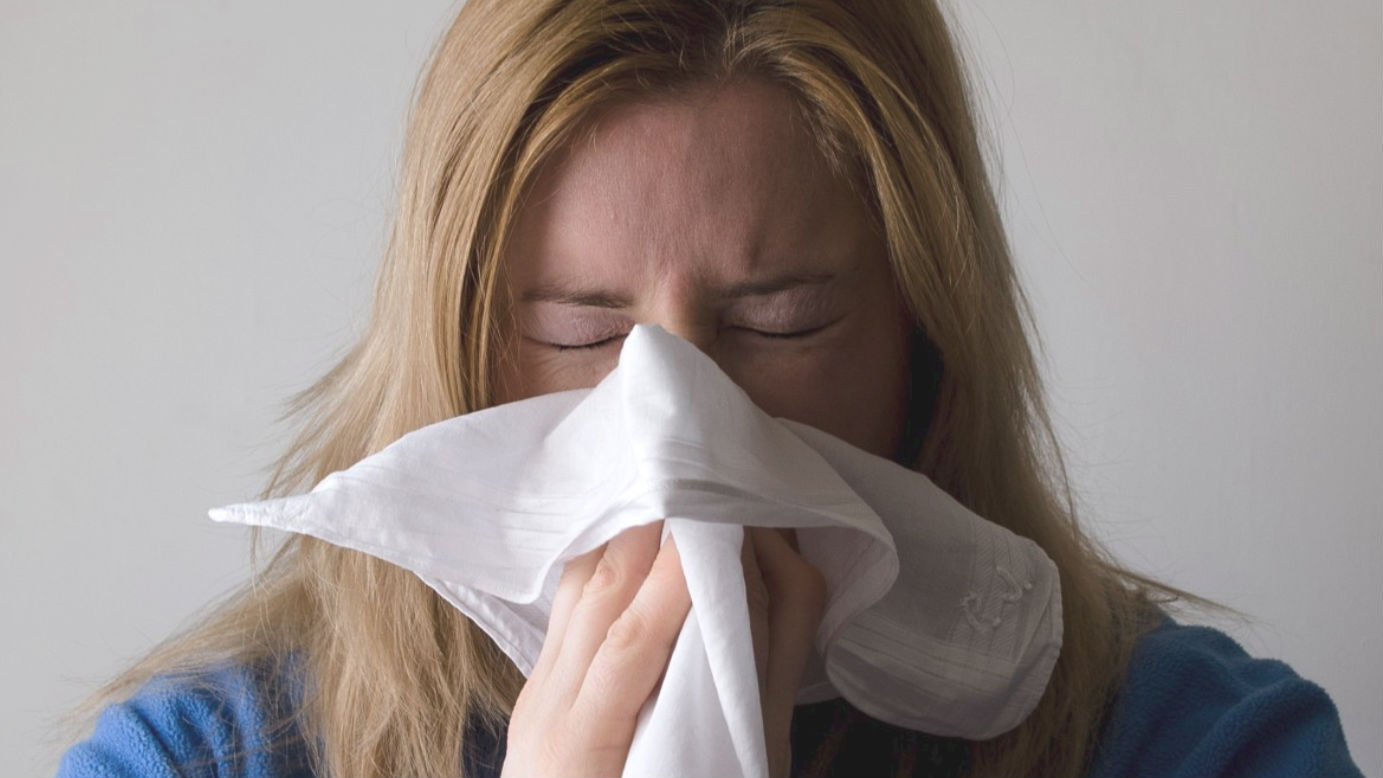What is the RSV virus and why is it surging among children?
Respiratory illness is bouncing back after a ‘hiatus’ during the Covid pandemic

A free daily email with the biggest news stories of the day – and the best features from TheWeek.com
You are now subscribed
Your newsletter sign-up was successful
The RSV infection may join forces with Covid and flu to form a “triple threat” of respiratory viruses that “could collide this winter”, experts believe.
If seasonal diseases like influenza and RSV were to coincide with another large wave of Covid, we “could be facing a public health disaster” in the form of a “tripledemic”, warned Adam Kleczkowski, professor of mathematics and statistics at the University of Strathclyde, on The Conversation.
What is RSV?
A common winter virus, RSV – or respiratory syncytial virus – usually causes mild coughs and colds but occasionally results in serious infections like bronchiolitis and pneumonia, particularly in young children. The elderly are also at particular risk.
The Week
Escape your echo chamber. Get the facts behind the news, plus analysis from multiple perspectives.

Sign up for The Week's Free Newsletters
From our morning news briefing to a weekly Good News Newsletter, get the best of The Week delivered directly to your inbox.
From our morning news briefing to a weekly Good News Newsletter, get the best of The Week delivered directly to your inbox.
The symptoms are “similar to a cold”, said the UK Health Security Agency. They might include:
- a runny nose
- sneezing
- nasal congestion
- a cough
- a fever
- ear infections
“Every year, about 29,000 babies need hospital care for RSV and most have no other health issues beforehand,” said the BBC.
It can spread in households because children “commonly get RSV at school or day care and bring it home to other family members”, said CNET, but most adults will “either have mild or no symptoms of RSV”.
Why is RSV on the rise?
In short, measures taken to stop Covid also led to a reduction in the spread of other viruses and we are all now less immune. Following a “hiatus” in 2020-21, noted Kleczkowski, the “seasonal pattern seems to be returning”, but this autumn has “already seen high hospitalisation numbers”.
A free daily email with the biggest news stories of the day – and the best features from TheWeek.com
“At the beginning of the pandemic, we took all these behavioral measures to tamp down on Covid transmission,” Katherine Wu, science writer for The Atlantic, told Slate, which “also happened to work marvellously against all these other respiratory viruses”.
But those viruses, including RSV, have now “taken every opportunity to come back”, she explained, and hit kids who “didn’t have the opportunity to be exposed to these viruses during the pandemic and build up the immunity that might have dampened the severity of their first infections”.
So what can be done about it?
A new treatment to protect babies has been approved by the UK regulator. The antibody treatment, called nirsevimab and made by AstraZeneca and Sanofi, has been shown to reduce lower respiratory tract infections caused by RSV by 74.5% in trials involving 4,000 babies.
“It works by preventing RSV from fusing to cells in the respiratory tract and causing infections,” explained the BBC, but “it still needs more research in larger numbers of babies before it can be used on the NHS”.
To that end, researchers who hope to determine whether it can cut the number of babies needing hospital care for RSV are calling for parents of newborn babies and those up to 12 months old to sign up for a study.
A vaccine against RSV made by Pfizer has produced promising results in trials. It was found that, when given to pregnant women to protect their newborns, it was 81% effective against severe respiratory illness because of RSV in the first 90 days of a baby’s life, said the BBC.
-
 How the FCC’s ‘equal time’ rule works
How the FCC’s ‘equal time’ rule worksIn the Spotlight The law is at the heart of the Colbert-CBS conflict
-
 What is the endgame in the DHS shutdown?
What is the endgame in the DHS shutdown?Today’s Big Question Democrats want to rein in ICE’s immigration crackdown
-
 ‘Poor time management isn’t just an inconvenience’
‘Poor time management isn’t just an inconvenience’Instant Opinion Opinion, comment and editorials of the day
-
 A Nipah virus outbreak in India has brought back Covid-era surveillance
A Nipah virus outbreak in India has brought back Covid-era surveillanceUnder the radar The disease can spread through animals and humans
-
 How dangerous is the ‘K’ strain super-flu?
How dangerous is the ‘K’ strain super-flu?The Explainer Surge in cases of new variant H3N2 flu in UK and around the world
-
 This flu season could be worse than usual
This flu season could be worse than usualIn the spotlight A new subvariant is infecting several countries
-
 Covid-19 mRNA vaccines could help fight cancer
Covid-19 mRNA vaccines could help fight cancerUnder the radar They boost the immune system
-
 The new Stratus Covid strain – and why it’s on the rise
The new Stratus Covid strain – and why it’s on the riseThe Explainer ‘No evidence’ new variant is more dangerous or that vaccines won’t work against it, say UK health experts
-
 RFK Jr. vaccine panel advises restricting MMRV shot
RFK Jr. vaccine panel advises restricting MMRV shotSpeed Read The committee voted to restrict access to a childhood vaccine against chickenpox
-
 RFK Jr. scraps Covid shots for pregnant women, kids
RFK Jr. scraps Covid shots for pregnant women, kidsSpeed Read The Health Secretary announced a policy change without informing CDC officials
-
 New FDA chiefs limit Covid-19 shots to elderly, sick
New FDA chiefs limit Covid-19 shots to elderly, sickspeed read The FDA set stricter approval standards for booster shots